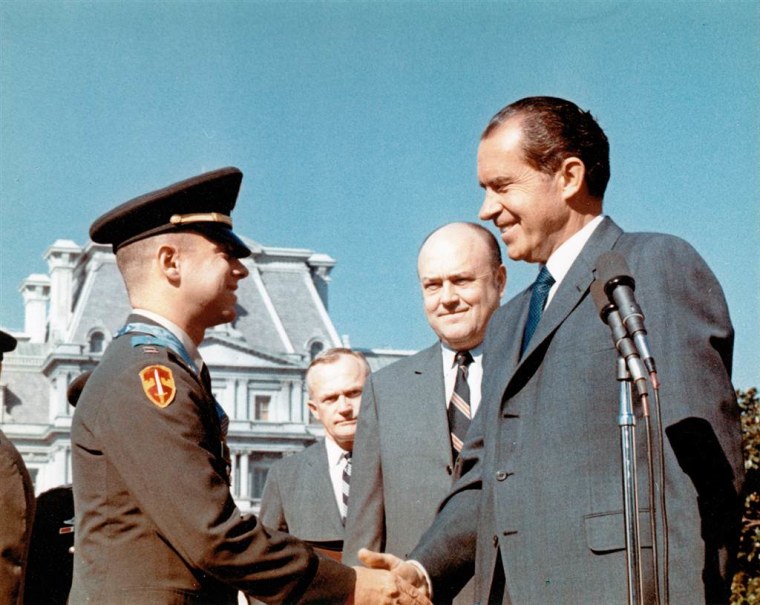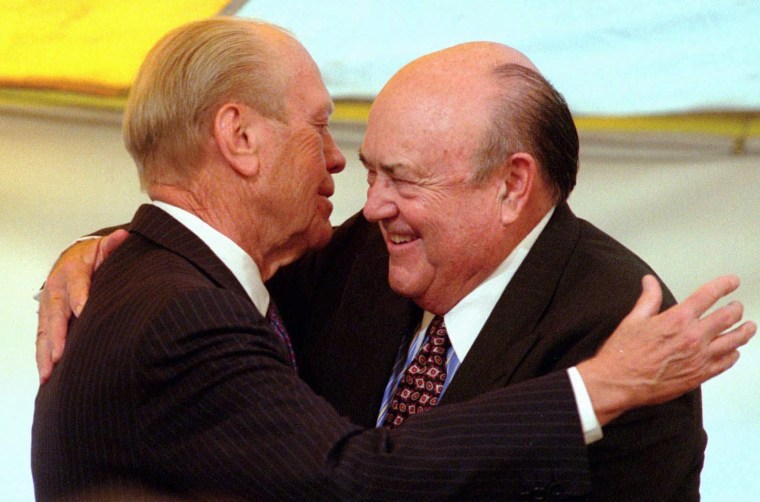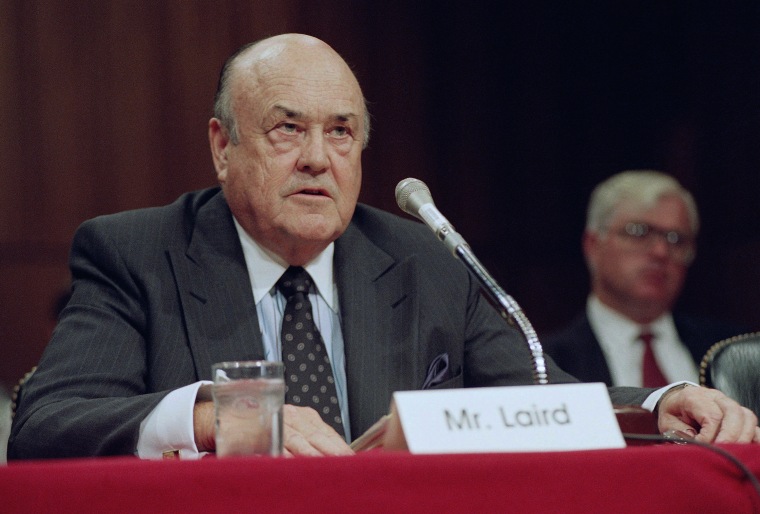Melvin R. Laird, who as defense secretary under President Richard Nixon oversaw the drawdown of U.S. forces in Vietnam and ended the military draft, died Wednesday at age 94.
The Defense Department and Rep. Sean Duffy, R-Wisconsin, who holds the House seat Laird represented in Congress from 1953 to 1969, confirmed Laird's death. Duffy called his predecessor "a good and gentle man."
A cause of death wasn't immediately reported.
Laird, who served in the Navy in the Pacific during World War II, was widely regarded as an authority on defense issues from the day he entered Congress in January 1953 after having served in the Wisconsin state Senate. He was serving on the defense subcommittee of the powerful House Appropriations Committee when President-elect Nixon tapped him to head the Pentagon.

As defense secretary, Laird developed what he called "Vietnamization" — the strategy of arming and training the South Vietnamese military forces so they could gradually take over combat duties from U.S. forces in the Southeast Asian war.
During Laird's four years at the Pentagon, the number of U.S. military forces in Vietnam dropped from 540,000 to just 69,000, according to the Defense Department's official history of the war. The Paris accords to end the war were signed Jan. 27, 1973 — two days before Laird left office.
An even bigger change for the long term came the same day, when Laird suspended the military draft, ending mandatory conscription of Americans into the armed services.
It was the culmination of months of work to overhaul the United States' military personnel policies, which also eventually brought more robust National Guard and reserve rosters, pay raises and major programs to fight racial and sexual discrimination in the military.

"Secretary Laird led the Defense Department through a time of great change in the world and within our department," said Ashton Carter, the current defense secretary. "He was always particularly proud that he oversaw the successful transition to an all-volunteer force. Through it all, he demonstrated an unfailing commitment to protecting our country, strengthening our military and making a better world."
Laird had promised to serve only four years at the Pentagon, and he stepped down as scheduled in January 1973 with his reputation intact — in stark contrast with that of one of his predecessors, Robert McNamara, who was considered the architect of the Vietnam War.
Laird returned to the Nixon administration as domestic policy adviser after Nixon was forced to fire domestic policy adviser John Ehrlichman and chief of staff H.R. Haldeman as the extent of the Watergate scandal became known — and then he quit when he learned of Nixon's personal involvement.
When Nixon resigned the presidency in August 1974, Laird had already helped to recruit the man who succeeded him, Gerald R. Ford.
As colleagues in Congress, Laird was a prominent supporter of Ford's campaign for House Republican leader. According to personal documents in the Melvin R. Laird Papers collection at the Gerald R. Ford Presidential Library, Laird extensively lobbied Nixon to appoint Ford to succeed Vice President Spiro Agnew after Agnew pleaded no contest to a charge of federal income tax evasion and resigned in October 1973.
Ford bestowed the Presidential Medal of Freedom on Laird in 1974.
In the decades after his service in government, Laird was a widely published and cited writer on defense and international relations. As recently as 2006, at age 83, he as part of a team of former secretaries of state and defense who consulted with President George W. Bush's foreign policy and military teams to develop a strategy to end the war in Iraq.
Bob Williams, a former campaign aide to Laird, told the Milwaukee Journal-Sentinel on Wednesday that Laird was fully engaged in public affairs until his death. He had been thinking about ways to ensure that President-elect Donald Trump picked a capable defense secretary, Williams said.
"Oh my, yes, he took that so seriously, because of the power you had and the power to influence the president," Williams told the newspaper.

